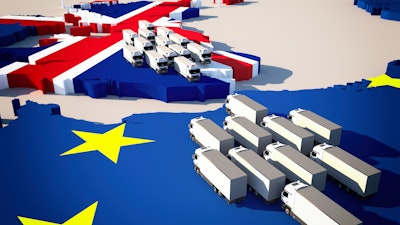
On July 5, 2024, the Corporate Sustainability Due Diligence Directive (CS3D) was published in the Official Journal of the European Union (Directive (EU) 2024/1760). CS3D is intended to address issues of increasingly complex supply chains throughout international business networks, such as the adverse effects of commercial operations on environmental protection and lack of human rights standards safeguards. Specifically, the directive seeks to establish a uniform legal regime in combatting human rights violations such as child labor, forced labor, discrimination and exploitation, as well as climate change and environmental destruction.
EU member states are to transpose CS3D into national law by July 2026. Germany will do this by appropriately adjusting the Lieferkettensorgfaltsgesetz (LkSG), among other things. Steps for these adjustments and other developments concerning CS3D implementation are expected to take shape in 2025.
CS3D obligations
CS3D requires companies to establish a strategy to transition to a sustainable economy, limit global warming per the Paris Agreement and achieve climate neutrality.
In terms of due diligence, companies are required to identify, prevent, end or mitigate adverse environmental and human rights impacts from their operations or those of their subsidiaries and in their chain of activities. These obligations encompass:
- Integrating due diligence into policies and management systems.
- Identifying and addressing adverse human rights and environmental impacts.
- Preventing, ceasing or minimizing actual and potential adverse human rights impacts.
- Monitoring and assessing the measures’ effectiveness.
- Corresponding communication.
- The provision of remediation in case of breaches.
CS3D application area
CS3D applies to companies with more than 1,000 employees on average and a net worldwide revenue exceeding 450 million euros in the last financial year for which annual financial statements have been or should have been adopted, provided the company is incorporated under an EU member state’s laws.
For non-EU companies, no minimum employee requirements apply. Instead, the annual net EU revenue constitutes the only criterion.
The directive grants different deadlines for compliance based on a company’s size. Large companies (5,000+ employees, €1.5 billion+ annual revenue) must comply by early 2027, medium-size companies (3,000 employees, €900 million annual revenue) by early 2028 and small companies (1,000 employees, €450 million) by early 2029. As of January 1, 2029, CS3D will also apply to EU-based franchise or licensing company models with annual revenue exceeding 80 million euros, 22.5 million of which must be royalties.
CS3D de facto affects many more companies than those that fall directly covered, as companies directly covered must obtain contractual assurances and extensive information from their business partners to ensure compliance. As a result, almost all companies in the EU and many in third countries will be affected.
Comparison to the German Supply Chain Act
Before CS3D’s adoption, several nations had already implemented equivalent regulations. Germany’s is the LkSG or German Supply Chain Act.
For companies in Germany, the structure of the LkSG and CS3D poses uncertainty. Since CS3D imposes stricter standards in certain elements, German companies subject to CS3D will likely need to implement compliance processes with the EU directive while monitoring processes with the LkSG.
The criteria for determining whether a company is subject to CS3D differ significantly from those of the LkSG, meaning that the latter will have to be amended, therefore likely affecting more German companies. Although the LkSG has so far applied regardless of the legal form, it requires at least 1,000 employees in Germany for German companies. CS3D requires only 1,000 employees worldwide, provided that global net sales exceed 450 million euros.
Whereas in the LkSG only the classic supply chain should be covered, CS3D affects the entire chain of a company's activities. Furthermore, CS3D significantly expands the environmental protection concept established in the LkSG, specifically focusing on climate protection. However, CS3D’s due diligence requirements essentially correspond to LkSG rules. The imminent implementation of the directive will therefore primarily broaden the scope of due diligence.
Moreover, the enforcement mechanism will also change. While the LkSG still excludes civil liability for violating due diligence obligations, CS3D explicitly provides for civil liability for damages the company causes – but not only by business partners in the activity chain.
The directive simplifies procedures for potential plaintiffs, allowing NGOs and trade unions to bring actions without standing, and companies will face new evidence disclosure requirements. Public liability is also being tightened. Companies with an annual revenue exceeding 400 million euros can now be fined a maximum of 5% of their annual revenue, up from 2%.
Criticism and concerns
While seeking to improve environmental and societal issues, CS3D does not come without pushback. Political and economic critics have voiced concerns, including high administrative expenses for compliance.
One major criticism is the increased personnel costs. According to a 2024 industry survey in Germany, almost 50% of large companies in Germany had to create one to two additional full-time positions, and a third created five or more.
Critics are also concerned that the legislation may weaken developmentally valuable effects of international supply chains and potentially harm the European economy due to threats from companies in developing and emerging markets that lack the means to comply to resign from the regulated market. Skeptics further claim that assumptions about companies’ degree of control over their supply chains are not realistic and will lead to an overburdening, especially for small and midsize companies.
Given the business community’s concerns, CS3D poses a risk to both domestic and foreign investment. Due to the increased administrative cost of compliance, foreign companies may shift investment to non-EU markets.
Implementation and new developments
Companies should assess whether they are subject to CS3D to avoid unforeseen economic effects and financial burdens. It is important for German companies to comply with the stricter requirements of CS3D versus the LkSG’s since EU legislation supersedes national legislation.
Companies will face numerous CS3D compliance challenges, including transparency and cooperation issues with business partners across the supply chain due to cultural, language, communication and business differences. They should expect ongoing adjustments and potentially high expenses for adequate software and IT resources and supplier training. If a company can’t ensure a partner's compliance, it may need to end the relationship to avoid liability or enforcement actions.
To prepare for CS3D implementation, companies should assess existing supply chains and compliance processes and determine measures for enhancing visibility and ensuring compliance throughout. This may require updating contracts and conducting regular audits.
To support companies with due diligence and authorities in their enforcement, the European Commission will issue guidelines under Art. 19 CS3D. However, the commission has until 30-36 months after the CS3D enters into force to issue the guidelines, so they will not be available until six months before or when the first companies start to apply them. EU member states must create special websites or platforms to provide information and support to companies, their business partners and stakeholders. They can also provide financial support to small and midsize companies (SMEs), and the commission will establish a central helpdesk.
Lastly, companies should seek expert tax, consulting and legal counsel to verify compliance and obtain guidance on potential alternatives.
Given the likely breadth of application of CS3D and lack of guidance, companies should carefully review existing information, monitor developments and establish comprehensive processes to minimize the risk of potentially significant liability exposure.



















